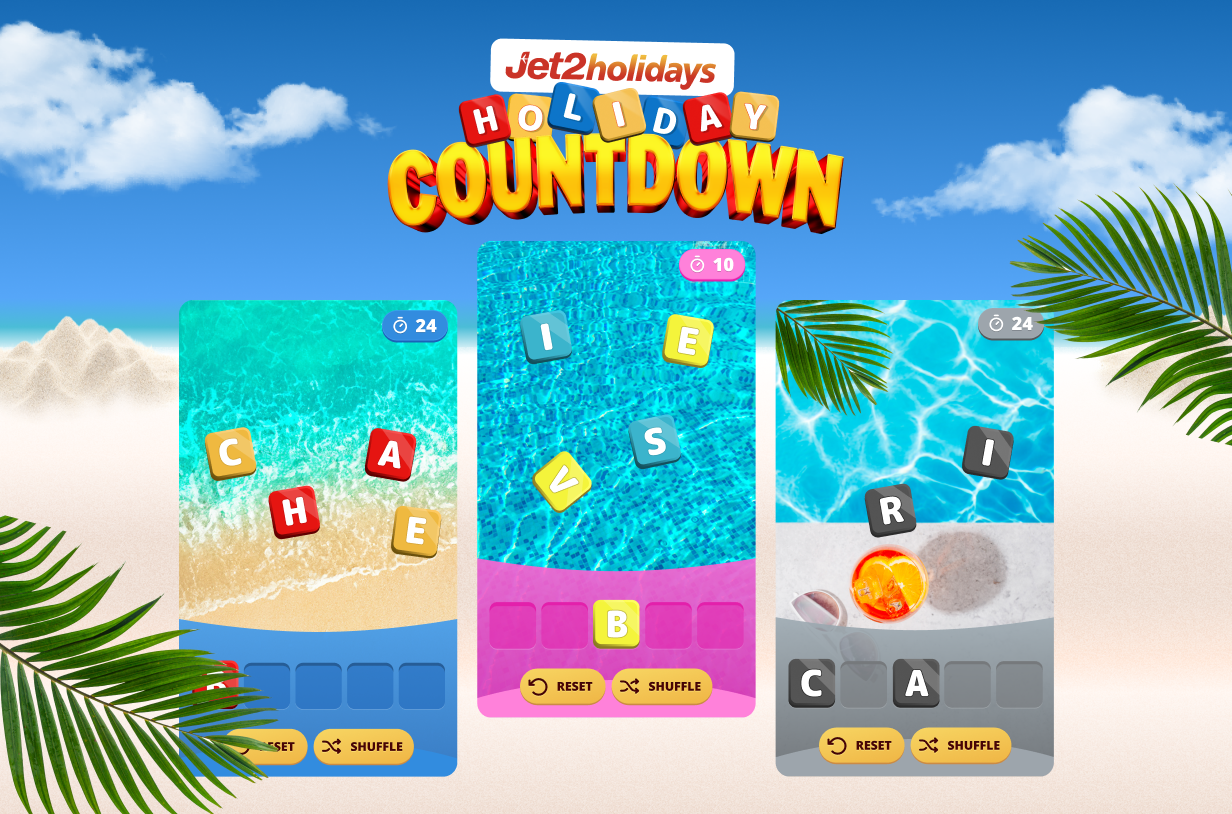Why digital activations are the future of travel marketing
Roughly a 4 minute read by Evie
Our top takeaways from the ABTA Travel Marketing conference
Back in May, we teamed up with ABTA to help travel brands boost bookings, capture valuable first-party data, and create memorable consumer experiences through digital activations.
At the ABTA Travel Marketing Conference, we shared exactly how activations can help brands connect more meaningfully with their audiences and make smarter use of the data they generate, with real-life examples of our work with brands like Jet2.
In the video above, Evie, Will and Gregg dig deeper into those themes and reflect on the wider opportunities for travel brands. Pressed for time? We’ve pulled out the six most important learnings below.
1. Travel’s big disconnect: high demand, low loyalty
UK travellers are booking more holidays than ever - on average 3.9 a year - yet loyalty is still low, with just 35% joining schemes. Many brands are still leaning on flash deals and glossy imagery, but digital activations offer something more lasting: emotional connection and brand recall through meaningful engagement.
2. First-party data that travellers actually want to give
With 69% of consumers more concerned about privacy, first-party data is now essential. Digital activations offer a respectful way to capture it, providing value in exchange for insight. And the smartest activations don’t just ask, they infer. A trip-builder, for example, can reveal departure airports or destination preferences without a single form field. The result is richer, more contextual data, delivered with less friction.

3. Data without direction is wasted effort
Gathering great data starts with a clear purpose. If you don’t know whether you’re aiming to capture segmentation, location signals or purchase intent, the information collected risks being noise instead of value. As shared in the discussion, digital activations work best when the data feeds straight into CRM and segmentation, powering personalisation well beyond the first click.
4. Format is the secret sauce
Not all digital activations are created equal. Quizzes, predictors, budget builders and games each offer different types of engagement and deliver different layers of insight. Choosing the right mechanic is crucial to align outputs with campaign objectives and ensure the experience is both memorable and meaningful.

5. Let activation lead the journey
Digital activations should be the start of the journey, not the end. The data captured can feed into CRM systems, power smarter segmentation and personalise emails, ensuring relevance long after the first interaction. They also help brands stay top of mind in the research stage, shaping decisions further down the booking funnel.
6. AI is raising the bar for everyone
AI is reshaping how travellers search, plan and book, with more people starting their holiday planning in AI platforms rather than traditional search engines. At the same time, AI can enhance digital activations themselves, enabling campaigns that personalise in real time or tailor experiences based on what is already known about a customer.
The view from above
The travel industry is thriving but more competitive than ever. According to ABTA’s Outbound Travel Report, the sector contributes £52 billion in GVA and supports 818,000 jobs across the UK.
With so many brands vying for attention, digital activations are no longer a nice-to-have. They are one of the most effective ways to drive bookings, boost loyalty, and power more personalised marketing campaigns.
But don’t just take our word for it - check out our recent results for Jet2.
Want to see how this could work for your brand? Get in touch today.